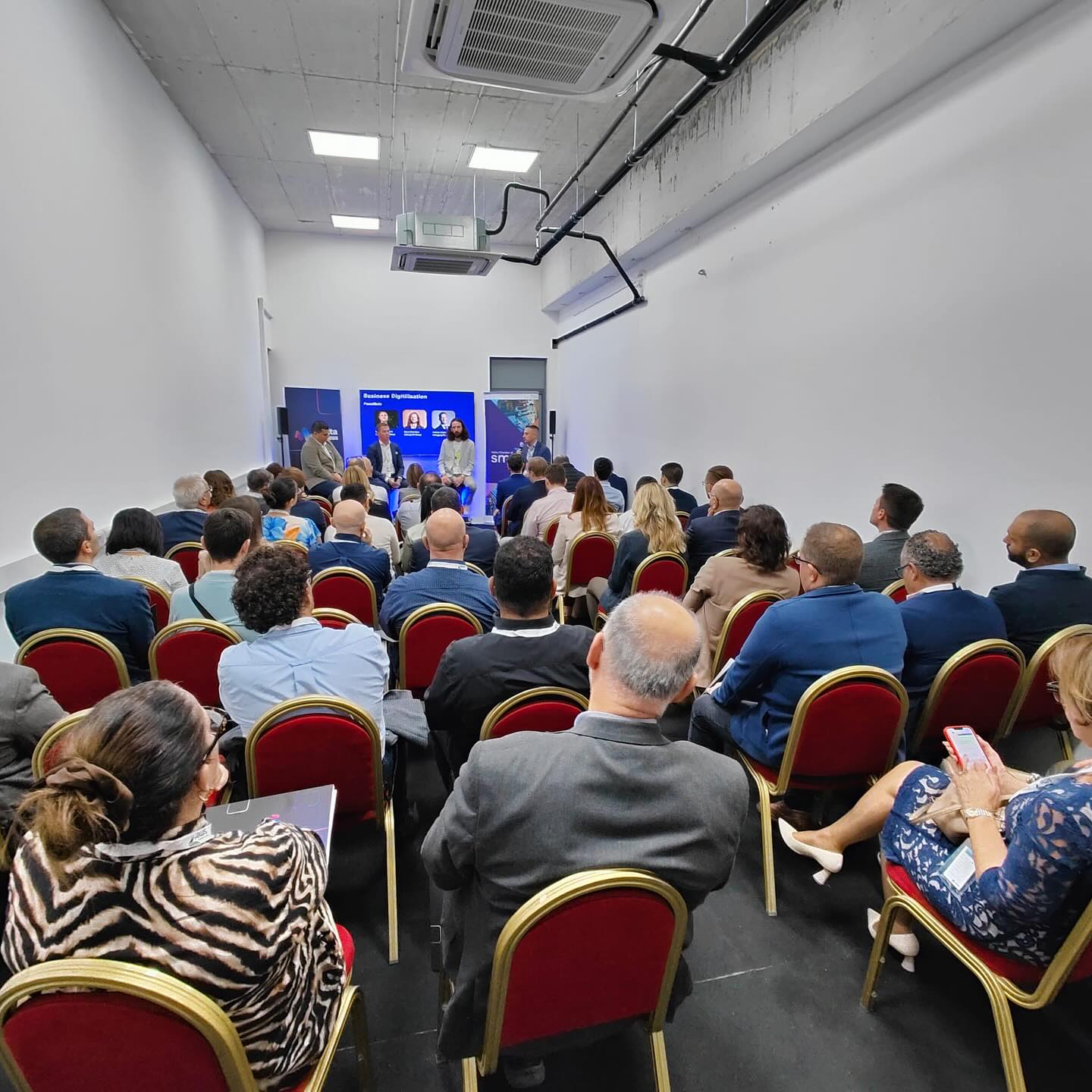
Another exclusive event organised by the Malta Chamber of SMEs, supported by Melita , was held at the Melita Data Centre – a high-security venue.
A special thank you to all our panellists and attendees for making it a success!

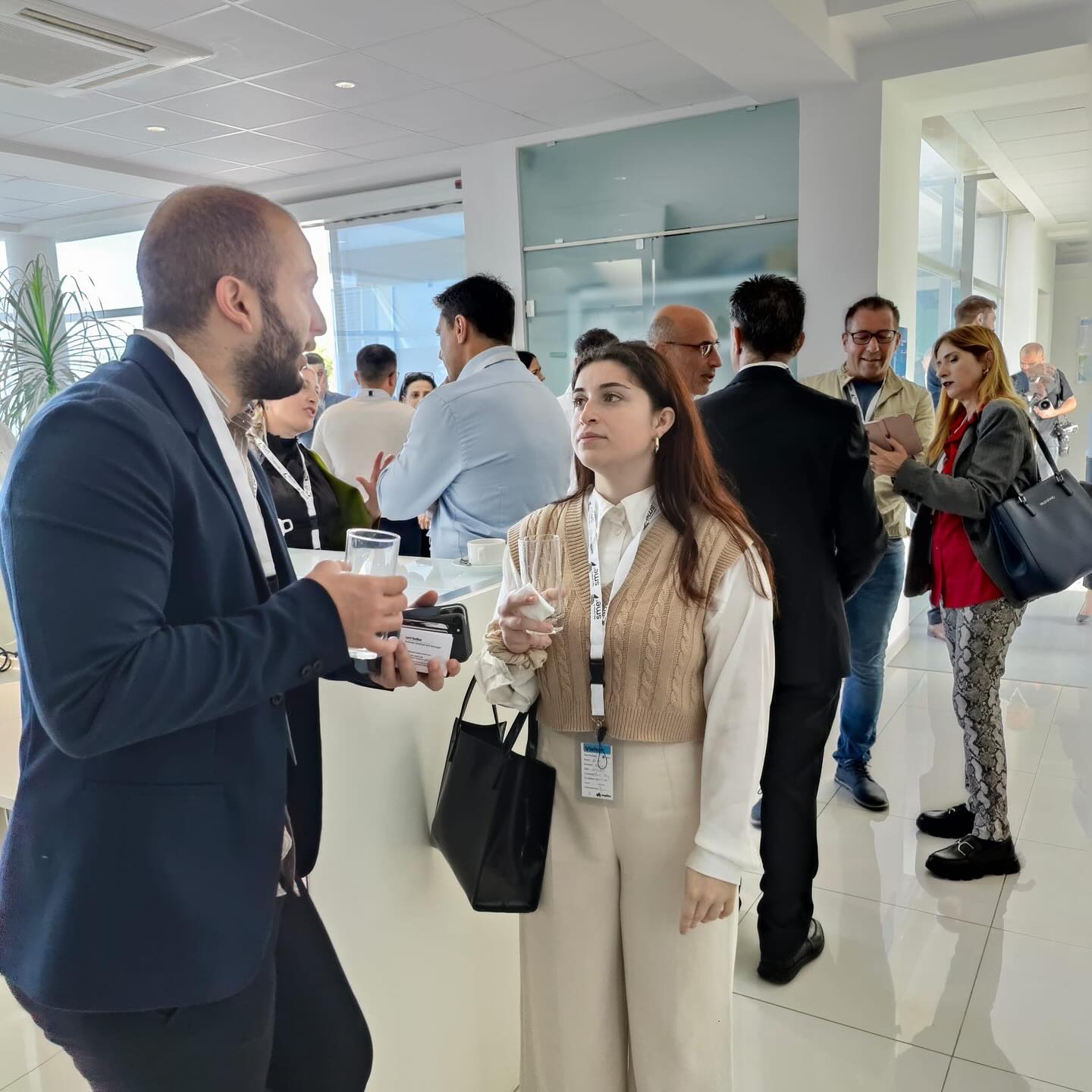
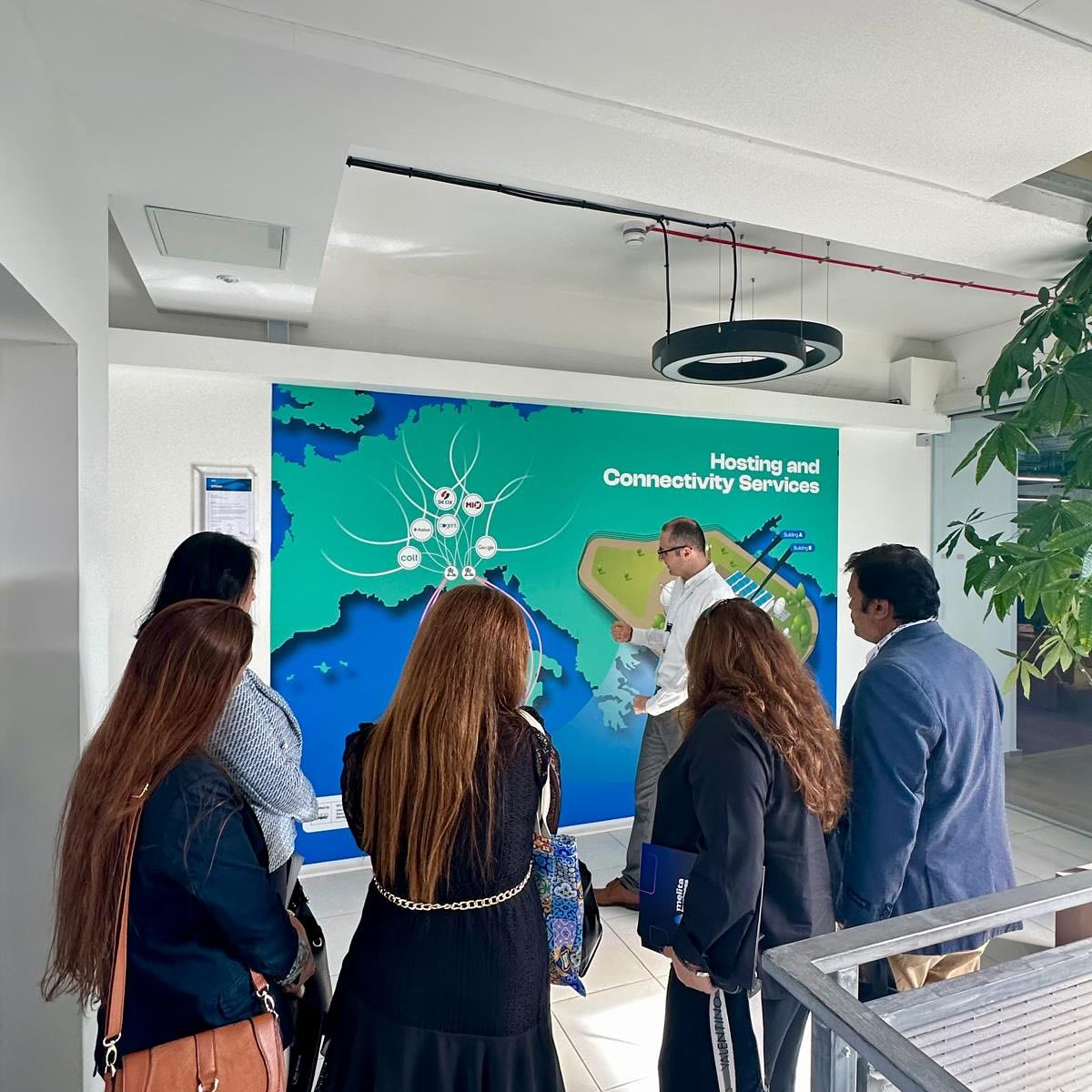



Another exclusive event organised by the Malta Chamber of SMEs, supported by Melita , was held at the Melita Data Centre – a high-security venue.
A special thank you to all our panellists and attendees for making it a success!





Hiring EU nationals in Malta is hassle-free for short-term employment (under 3 months) as no work permit is required—simply register their employment with Jobsplus. This streamlined process facilitates quicker onboarding and flexibility for employers.
For comprehensive support in navigating Employment Law, join the Malta Chamber of SMEs. Members gain access to free legal advice and support, empowering businesses to make informed decisions and ensure compliance with regulations.
This campaign is backed by the Norway Grant 2014-2021 through the Social Dialogue and Decent Work Programme, promoting fair and progressive employment practices in Malta. By joining the SME Chamber, businesses contribute to a stronger, more inclusive workforce environment. Stay ahead of legal developments and optimize your hiring strategies—become a member of the SME Chamber today.
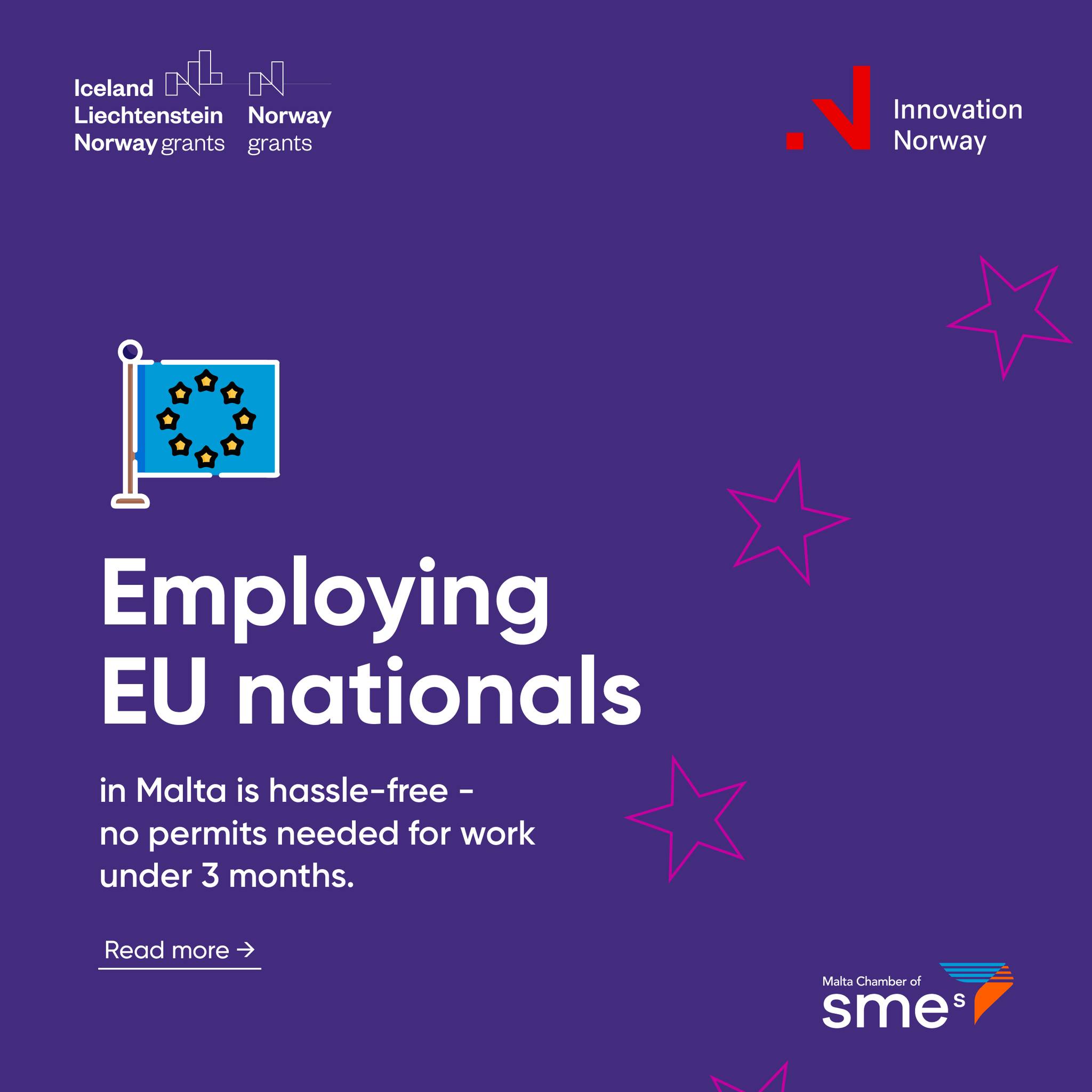
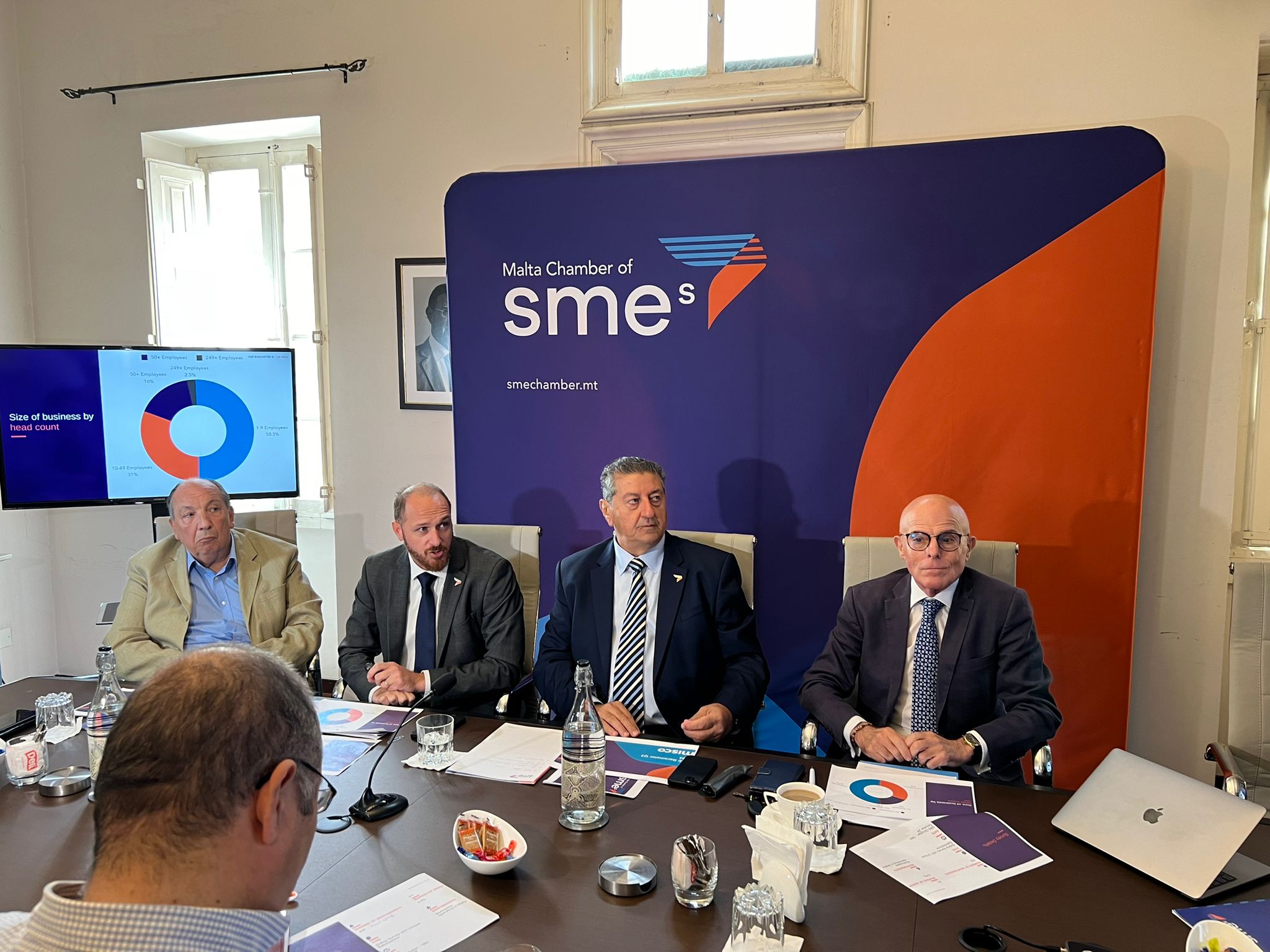
The Malta Chamber of SMEs earlier today published the results of the SME Barometer (Q3 2024) Survey conducted amongst a total of 432 businesses (50.5% – Micro, 31%- Small, 16% – Medium and 2.5% – Large).
When asked what the topmost important issues are concerning their businesses, respondents stated that the most pressing issues are: Employee Shortage (43%), Unfair Competition (22%) and Traffic Congestion (18%).
The primary contributors to business concerns when it comes to national issues, respondents mentioned lack of good governance (41%) and Overpopulation (39%), which for the first time has featured as the second most important issue. Inflation continued to take a downward trend when compared to the previous quarter.
SME Chamber President Mr. Paul Abela said that ‘The businesses believe that unfair competition is impacting their business and this having a direct impact on their growth as a business coupled with a number of operational issues including the lack of staff’……Overpopulation is also having a direct impact on the countries’ overall infrastructure and support services’. This was evident also in other data, traffic congestion featuring as a key issue hindering the day to day operation.
The data shows that overall businesses’ sentiment continued to shift with 57% expressing uncertainty on whether it is a good time to invest in the next 12 months. 30% stated that the next twelve months is not a good time to invest, and 13% stated that it is a good time to invest.
Misco Director Mr. Lawrence Zammit noted that as highlighted employee shortage remains a topmost concern as a result of the current economic model. At the same time overpopulation was also regarded as an issue the government must tackle. In this regard, the government needs to incentivise further the digitalisation and automation processes of businesses in order to ensure that we can do more with less.
The SME Barometer survey is a collaborative effort between the SME Chamber and MISCO.
Click here to download the presentation.
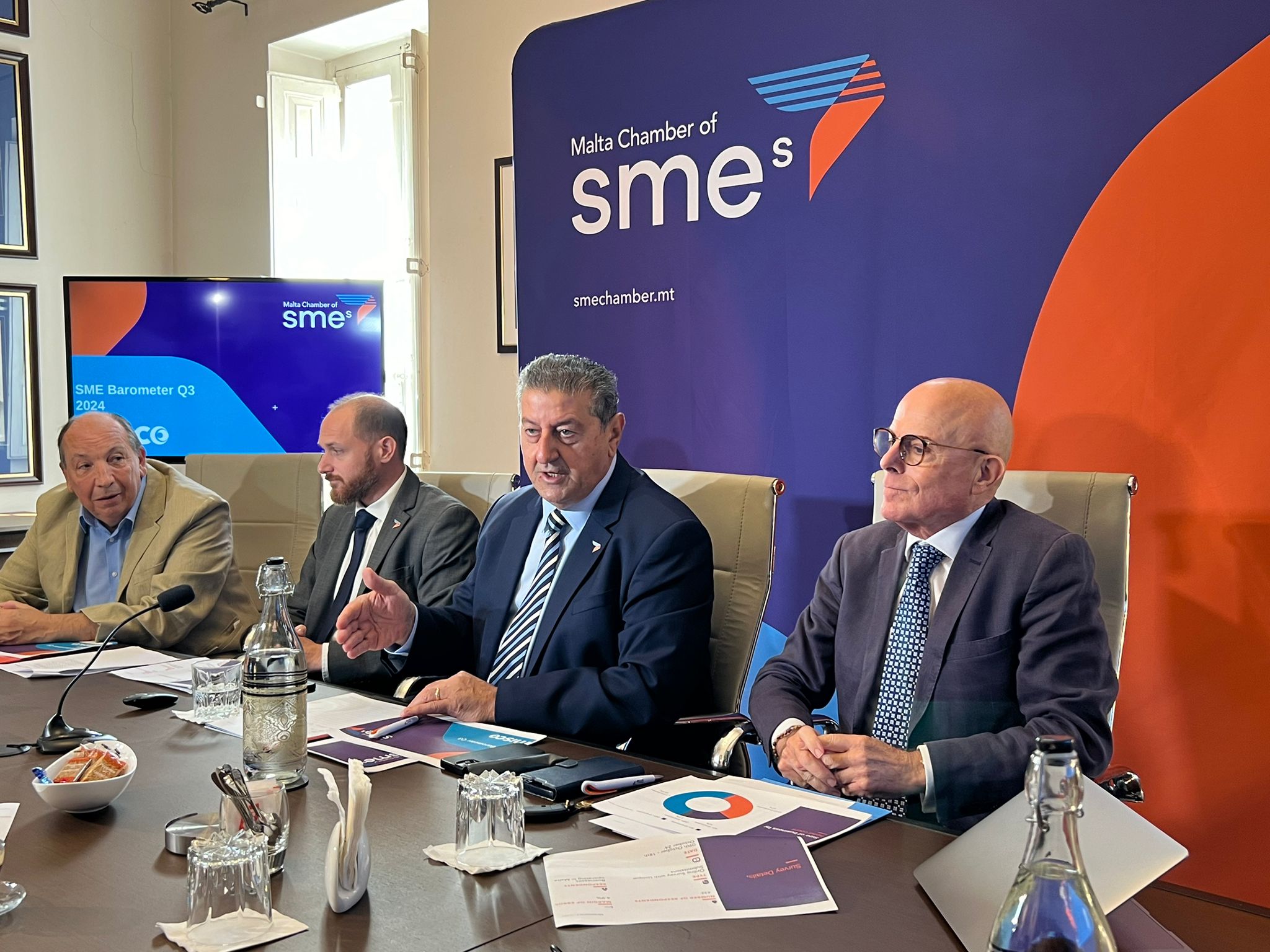

The Malta Communications Authority (MCA) reminds that, starting from 1 November 2024, technical measures are scheduled to be activated by local network operators to block calls from reaching Malta from abroad where the Caller ID is a Maltese number starting with ‘+356 1’, ‘+356 2’ or ‘+356 8’. Moreover, additional filtering will take place to block calls with invalid or prohibited Maltese numbers. These measures may also have an impact on users of internet- or cloud-based communications solutions who place calls with Caller IDs starting with these prefixes.
These measures follow a public consultation process launched by the MCA in 2023 and became mandatory following a decision notice published in April 2024. The measures will filter out potential scam calls reaching Malta from abroad.
Following the publication of this decision, the MCA immediately embarked on an extensive campaign to raise awareness with the general public, and amongst users of internet- or cloud-based communications solutions that may be affected by the new blocking measures. Local telephone providers were also required to notify all their telephony subscribers individually.
Businesses and other entities who make use of internet- or cloud-based communications solutions to place calls with Caller ID set to a Maltese number starting with ‘+356 1’, ‘+356 2’, or ‘+356 8’ are still urged to ensure that their solutions are provided by compliant service providers. Otherwise, from 1 November 2024, all such calls towards Maltese numbers would be blocked.
Users of such solutions may verify whether their solution will be affected by placing a call from such solution towards +356 2400 2400. Testing is only necessary for solutions that use Maltese numbers starting with the prefix ‘+356 1’, ‘+356 2’, or ‘+356 8’ as the Caller ID. Users calling from a solution that will not be impacted will hear an announcement that their service provider is locally authorised with the MCA. On the other hand, if the call fails to connect, or generates an announcement that the number is invalid or does not exist, such users should reach out to the provider of the respective internet- or cloud-based communications solution to seek assistance.
More information on the MCA’s activities related to combating scam calls, or on the forthcoming blocking measures, may be found in the respective FAQs on the MCA’s website www.mca.org.mt/consumer/faqs. Alternatively, reach out to the MCA on +356 2133 6840 or via email on or .
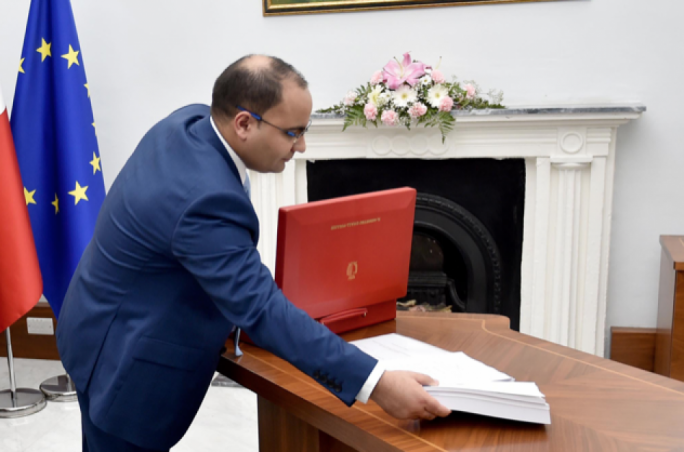
Following today’s budget speech, the SME Chamber notes that this is a Budget of continuity. The continuation of energy subsidies is essential for businesses sustainability. The extension of work-life balance measures for the self-employed is a positive step forward. On the other hand, the SME Chamber notes that none of its proposals have been taken up, with businesses barely mentioned in the Budget document.
While the SME Chamber welcomes the widening of tax brackets for the lower bracket, the SME Chamber notes that the electoral manifesto promise to reduce tax for businesses from 35% to 25% has for another year not been fulfilled. This continues to place local businesses at a disadvantage when compared to foreign owned businesses who are effectively taxed at 5%.
While the SME Chamber acknowledges that the subsidy for EVs has been retained, it is being reduced from €11,000 to €8,000. We believe that the adoption of green transportation should be encouraged further.
Unfortunately, the Budget falls short in addressing other critical challenges that businesses are facing. Several serious issues were only briefly mentioned in the Budget speech, lacking the decisive action that Malta urgently needs at this stage of implementation. The serious employment related issues, such as the pressing issue of job-skill mismatch and recruitment challenges, bureaucracy and issues with the countries’ overall infrastructure, merited more attention in this budget.
The SME Chamber feels issues seriously affecting productivity have not been giventhe importance they deserve.

Employee engagement is a crucial factor in the success of any business, and it holds particular importance for Small and Medium Enterprises (SMEs). SMEs often rely on smaller, close-knit teams, meaning employee motivation and satisfaction have a more immediate impact on performance. Employee engagement surveys are essential tools for measuring and improving this aspect of workplace dynamics.
Employee engagement reflects the emotional commitment employees have to their organisation and its objectives. For SMEs, where resources may be limited, the impact of engaged employees is significant. Engaged workers tend to be more productive, contribute to a positive work culture, and show more loyalty, resulting in lower turnover rates. For SMEs, the cost of hiring and training new employees can be substantial, so retaining talent is critical.
Moreover, employee engagement drives customer satisfaction. In SMEs, where employees often interact directly with clients, having a motivated and engaged team can lead to better customer service, which is vital for maintaining a competitive edge in the market. Engaged employees are also more likely to contribute to innovation and problem-solving, helping the business stay agile in a rapidly changing business environment.
Conducting employee engagement surveys allows businesses to understand how employees feel about their work environment, leadership, job satisfaction, and overall well-being at work. For SMEs, these surveys can provide a snapshot of workplace morale and identify areas where improvement is needed.
While large organisations often have the resources to conduct complex and wide-reaching engagement surveys, SMEs may face challenges in this area. Limited budgets, smaller teams, and less specialised HR resources can make it difficult for SMEs to regularly assess employee engagement. However, the benefits of conducting these surveys are immense as they provide actionable insights that can lead to improved performance.
One of the most effective ways SMEs in Malta can assess their employee engagement is by using the a local engagement benchmark, which offers valuable local insights. misco, a leading HR services provider in Malta, has developed a benchmark survey based on local data, which allows businesses to compare their employee engagement levels with others in the country. This local context is particularly important, as it reflects Malta’s unique labour market dynamics and cultural factors.
This benchmark provides insights, allowing SMEs to compare themselves with businesses in the local context. This is invaluable in identifying both strengths and weaknesses in employee engagement. For example, an SME might learn that its employees are more satisfied with work-life balance but feel underaccomplished when it comes to career development opportunities.
SMEs can use such surveys effectively by following a structured approach. First, they should define the objectives of their survey, ensuring they focus on areas most critical to their business. After conducting the survey, the results should be analysed in relation to the MISCO benchmark. This comparison will highlight areas needing improvement and help SMEs develop action plans that address specific issues, such as management communication or job satisfaction.
Sharing survey results with employees and communicating the action plan demonstrates that their feedback is valued, further boosting engagement. Finally, SMEs should monitor progress and conduct follow-up surveys to assess the impact of any changes made.
For SMEs, fostering employee engagement is key to building a motivated, productive, and loyal workforce. By conducting regular engagement surveys and using tools like engagement benchmarks, SMEs can ensure they are not only addressing employee needs but also staying competitive in their local market. The insights gained from engagement surveys can guide actionable improvements that enhance overall business performance.
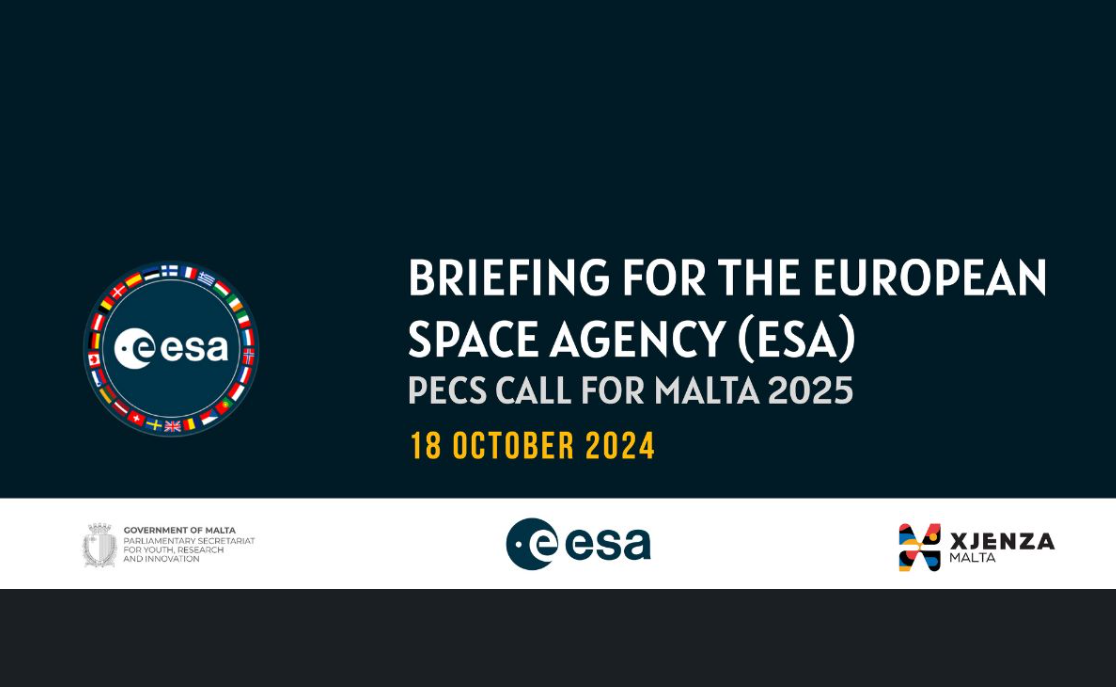
The European Space Agency – ESA and Xjenza Malta invites you to a Briefing for the European Space Agency (ESA) PECS Call for 2025. This is a great opportunity for all companies and institutions who are interested in Space Applications and Services to apply for tenders to conduct research and development in this broad and rapidly growing sector. During the session ESA will be providing training for potential candidates on how to apply for ESA Tenders under the Maltese PECS arrangement.
Join us for the briefing at Xjenza Malta, Villa Bighi, Kalkara on the 18 October 2024.
Applicants from the Private and Public sector can also book one-to-one meetings with an ESA representative to discuss their project proposals after the briefing. Please note that these will be hosted at Xjenza Malta on the 18th of October from: 15:30 – 18:00
To register: Click here and for more information please visit: https://lnkd.in/g2ZujWVh

The Energy and Water Agency together with the Institute for Sustainable Energy, at the University of Malta, are pleased to announce the third edition of the National Energy Conference which will be held on the 24th October 2024 at Villa Arrigo, Naxxar from 9am till 4pm.
This year’s conference shall explore the intertwined nature of the energy and digital transitions, and how the latter is shaping the former. It shall bring on the table for discussion the opportunities, as well as challenges associated with these transitions and take stock of the preparedness of Malta’s energy system.
The conference will once again bring together both local and international speakers from various energy sectors as well as academia to discuss topics related to the aforementioned. The audience which is expected to be a mix of policy makers, professionals, business entities, students and public officers, will also have the opportunity to engage in a Q&A after each session.
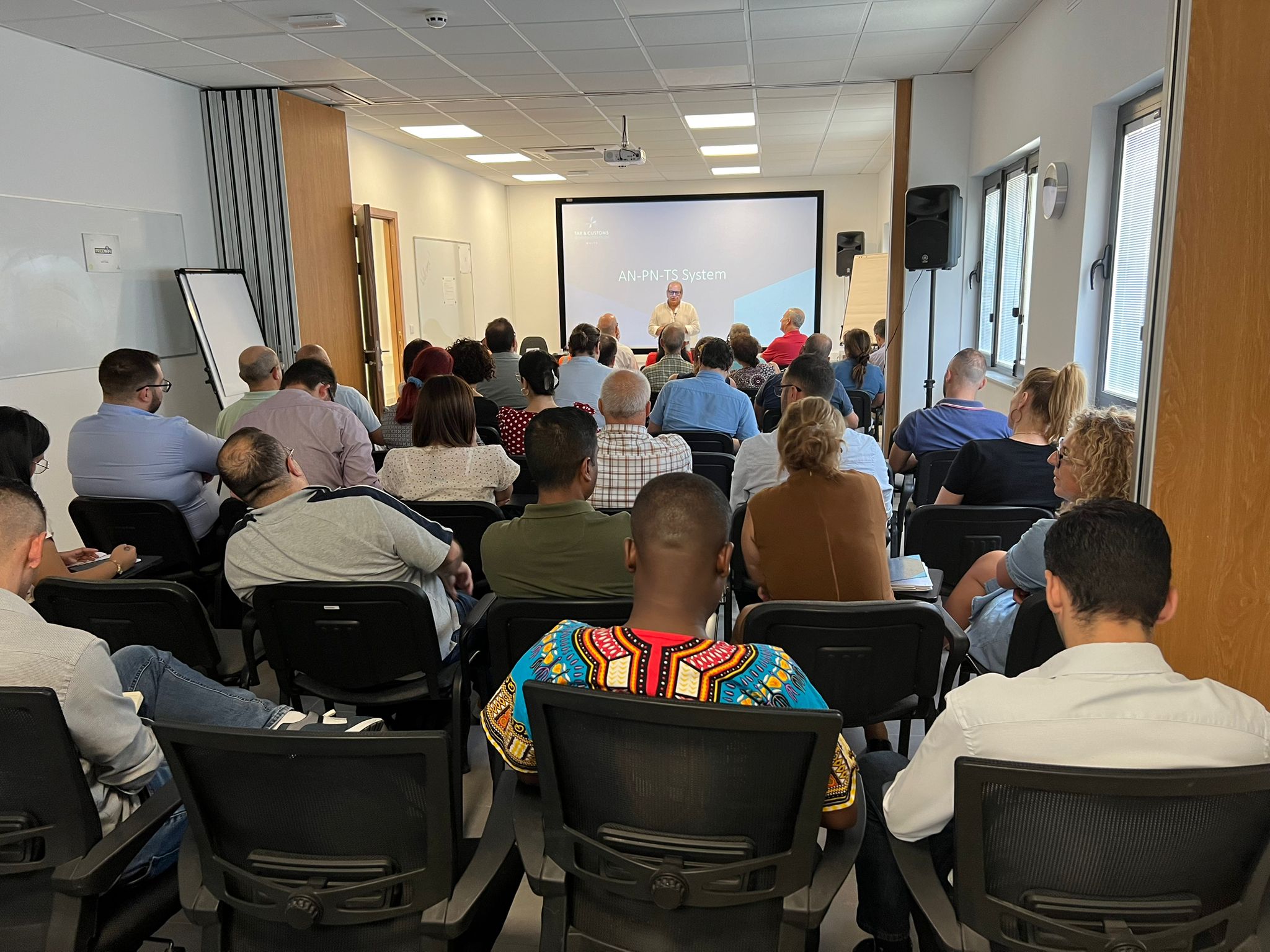
The Malta Chamber of SME’s in collaboration with the Customs Malta organised an information session for Customs Clearance Agents; Hauliers (Burdnara) and Importers related to the new AN-PN-TS System, a new system for import declarations.
Should you nee any further information on this subject, kindly get in touch by email on .